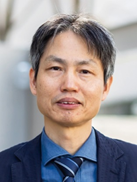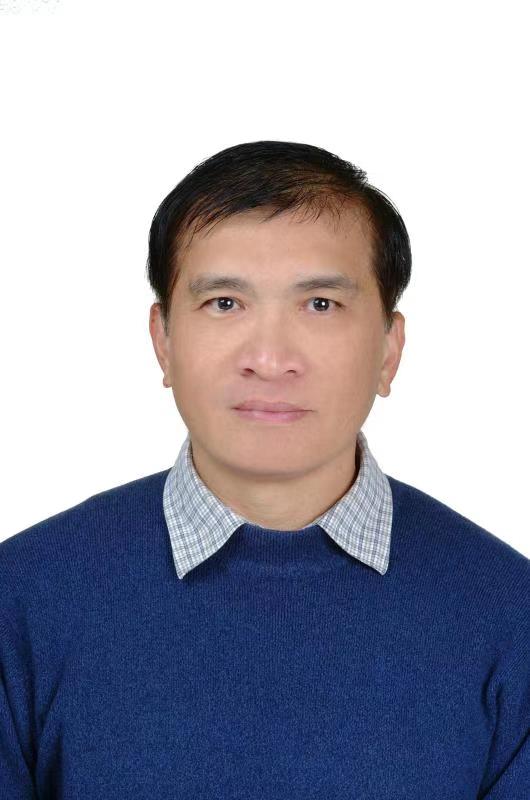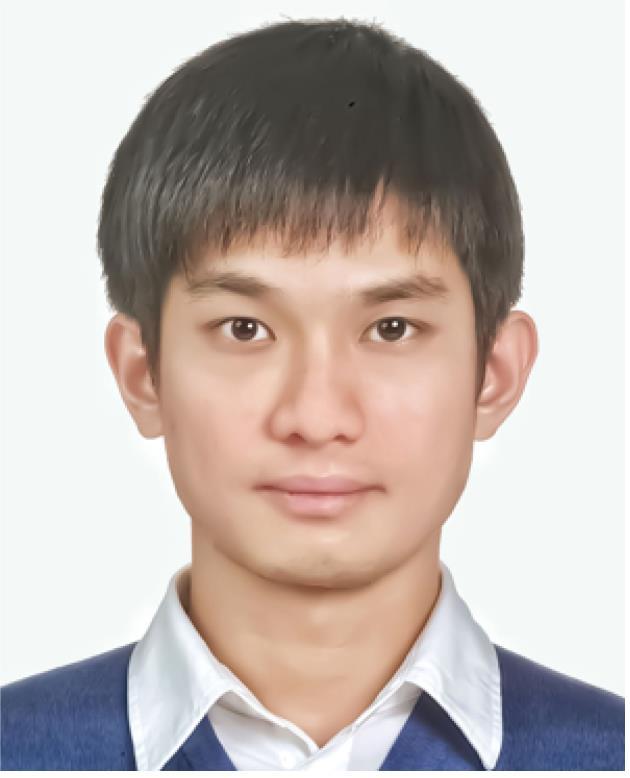Keynote Speakers
 Prof. Kemal Akkaya (IEEE Fellow)
Prof. Kemal Akkaya (IEEE Fellow)
Florida International University, USA
Dr. Kemal Akkaya is Eminent Chaired Scholar Professor in the Knight Foundation School of Computer and Information Sciences at Florida International University (FIU). He received his PhD in Computer Science from University of Maryland Baltimore County in 2005 and joined the department of Computer Science at Southern Illinois University (SIU) as a faculty. Dr. Akkaya was a visiting professor at The George Washington University in 2013, a Faculty Fellow at Airforce Research Lab in Summer 2020 and a visiting faculty at University of Florida Nelms Institute of Connected World in 2021. He is the Co-Director of Center for Integrated Security, Privacy and Trustworthy AI (CIERTA) and also leads the Advanced Wireless and Security Lab (ADWISE) at FIU. His current research interests include security and privacy, IoT, blockchain, and cyber-physical systems. Dr. Akkaya is a Fellow of IEEE and senior member of ACM. He is the area editor for IEEE Transactions on Forensics and Security, Elsevier Ad Hoc Network Journal, and Computer Networks Journal. Dr. Akkaya was the editor-in-chief of Springer Nature Computer Science journal (2022-2023), the General Chair of IEEE LCN 2018, General Co-chair of IEEE NOMS 2023, and TPC Chair for IEEE ICC Smart Grid Communications in 2019. He has published over 300 papers in peer-reviewed journal and conferences, 1 book along with 9 patents. He received more than 20,000 citations with a Google h-index of 59. He was listed among the top 2% scientists in the world according to a Stanford University study in 2020-24. Dr. Akkaya received FIU Faculty Senate Excellence in Research Award, FIU College of Engineering and Computing Research Award both in 2020 and FIU Top Scholar Award in 2023. He has also received ``Top Cited'' article award from Elsevier in 2010. More information about his research and lab can be obtained at https://web.eng.fiu.edu/kakkaya/ and http://adwise.fiu.edu/ .
 Prof. Qun Jin
Prof. Qun Jin
Waseda University, Japan
Qun Jin is a professor in the Department of Human Informatics and Cognitive Sciences, Faculty of Human Sciences, Waseda University, Japan. He has been extensively engaged in research works in the fields of computer science, information systems, and human informatics, with a focus on understanding and supporting humans through convergent research. His recent research interests cover behavior and cognitive informatics, health informatics, artificial intelligence and machine learning, big data, personal analytics and individual modeling, trustworthy platforms for data federation, sharing, and utilization, cyber-physical-social systems, and applications in healthcare and learning support and for the realization of a carbon-neutral society. He authored or co-authored several monographs and more than 430 refereed papers published in academic journals and international conference proceedings. He served as a general chair, program chair, and keynote speaker for numerous IEEE/ACM sponsored international conferences. He is a foreign fellow of the Engineering Academy of Japan (EAJ) and a fellow of the Asia-Pacific Artificial Intelligence Association (AAIA). More information can be found at https://researchmap.jp/jinqun/?lang=en .
 Prof. Chin-Chen Chang (IEEE Fellow/ IEE Fellow)
Prof. Chin-Chen Chang (IEEE Fellow/ IEE Fellow)
Feng Chia University, Taiwan
Professor C.C. Chang obtained his Ph.D. degree in computer
engineering from National Chiao Tung University. He's first degree
is Bachelor of Science in Applied Mathematics and master degree is
Master of Science in computer and decision sciences. Both were
awarded in National Tsing Hua University. Dr. Chang served in
National Chung Cheng University from 1989 to 2005. His current title
is Chair Professor in Department of Information Engineering and
Computer Science, Feng Chia University, from Feb. 2005.
Prior to joining Feng Chia University, Professor Chang was an
associate professor in Chiao Tung University, professor in National
Chung Hsing University, chair professor in National Chung Cheng
University. He had also been Visiting Researcher and Visiting
Scientist to Tokyo University and Kyoto University, Japan. During
his service in Chung Cheng, Professor Chang served as Chairman of
the Institute of Computer Science and Information Engineering, Dean
of College of Engineering, Provost and then Acting President of
Chung Cheng University and Director of Advisory Office in Ministry
of Education, Taiwan.
Professor Chang's specialties include, but not limited to, data
engineering, database systems, computer cryptography and information
security. A researcher of acclaimed and distinguished services and
contributions to his country and advancing human knowledge in the
field of information science, Professor Chang has won many research
awards and honorary positions by and in prestigious organizations
both nationally and internationally. He is currently a Fellow of
IEEE and a Fellow of IEE, UK. On numerous occasions, he was invited
to serve as Visiting Professor, Chair Professor, Honorary Professor,
Honorary Director, Honorary Chairman, Distinguished Alumnus,
Distinguished Researcher, Research Fellow by universities and
research institutes. He also published over 1,100 papers in
Information Sciences. In the meantime, he participates actively in
international academic organizations and performs advisory work to
government agencies and academic organizations.
Invited Speakers

Nara Institute of Science and Technology, Japan
Shoji Kasahara received the B. Eng., M. Eng. and Dr. Eng. degrees from Kyoto University in 1989, 1991 and 1996, respectively. He was with the Educational Center for Information Processing, Kyoto University from 1993 to 1997, as an Assistant Professor. From 1997 to 2005, he was with Graduate School of Information Science, Nara Institute of Science and Technology. From 2005 to 2012, he was an Associate Professor of Department of Systems Science, Graduate School of Informatics, Kyoto University. Since 2012, he has been a Professor of Graduate School of Information Science, Nara Institute of Science and Technology. His research interests include queueing theory, operations research, and performance modeling of computer and communication systems. He was the Director of Journal and Transactions, IEICE, during 2020–2022, and the President of Communications Society, IEICE, during 2023-2024. He is a fellow of IEICE and ORSJ, and a senior member of IEEE.
 Prof. Weizhi Meng
Prof. Weizhi Meng
Lancaster University, U.K.
Weizhi Meng is a Full Professor in the School of Computing and Communications, Lancaster University, United Kingdom, and an adjunct faculty in the Department of Applied Mathematics and Computer Science, Technical University of Denmark, Denmark. He obtained his Ph.D. degree in Computer Science from the City University of Hong Kong. He was a recipient of the Hong Kong Institution of Engineers (HKIE) Outstanding Paper Award for Young Engineers/Researchers in both 2014 and 2017. He also received the IEEE ComSoc Best Young Researcher Award for Europe, Middle East, & Africa Region (EMEA) in 2020. His primary research interests are blockchain technology, cyber security and artificial intelligence in security including intrusion detection, blockchain applications, smartphone security, biometric authentication, and IoT security. He is an ACM Distinguished Speaker.
Speech Title:
DevLeChain: An Open Blockchain Platform for DApps
Development
Abstract: Blockchain has become popular in
various domains and networking environments. The
development of smart contract has extended the usage
of blockchain from a simple ledger database for
decentralized cash transaction system into a
platform that provides transaction intelligence.
With all conveniences that smart contract has
brought, it does not affect the underlying
characteristics of solid data integrity and
transaction auditability. However, to apply these
new technologies into existing systems may not be
easy. For this issue, this talk first introduces
DevLeChain, a blockchain development platform that
comes with unified access method, easy-to-understand
development workflow, and constant design
philosophy. It provides an easy toolset to customize
and control the underlying blockchain’s behavior to
support DApps development and blockchain education.
Then this talks will briefly introduce our developed
decentralized applications (DApps) based on
DevLeChain and an EU H2020 project of DataVaults.
 Dr.
Ching-Chun Chang
Dr.
Ching-Chun Chang
National Institute of Informatics, Japan
CHING-CHUN CHANG received his PhD in Computer Science from the University of Warwick, UK, in 2019. He participated in a short-term scientific mission supported by European Coop- eration in Science and Technology Actions at the Faculty of Computer Science, Otto-von-Guericke-Universität Magdeburg, Germany, in 2016. He was granted the Marie-Curie fellowship and participated in a research and innovation staff exchange scheme supported by Marie Skłodowska-Curie Actions at the Department of Electrical and Computer Engineering, New Jersey Institute of Technology, USA, in 2017. He was a Visiting Scholar with the School of Computer and Mathematics, Charles Sturt University, Australia, in 2018, and with the School of Information Technology, Deakin University, Australia, in 2019. He was a Research Fellow with the Department of Electronic Engineering, Tsinghua University, China, in 2020. He is currently a Postdoctoral Research Fellow with the National Institute of Informatics, Japan. His research interests include steganography, forensics, biometrics, cybersecurity, computer vision, computational linguistics and artificial intelligence.